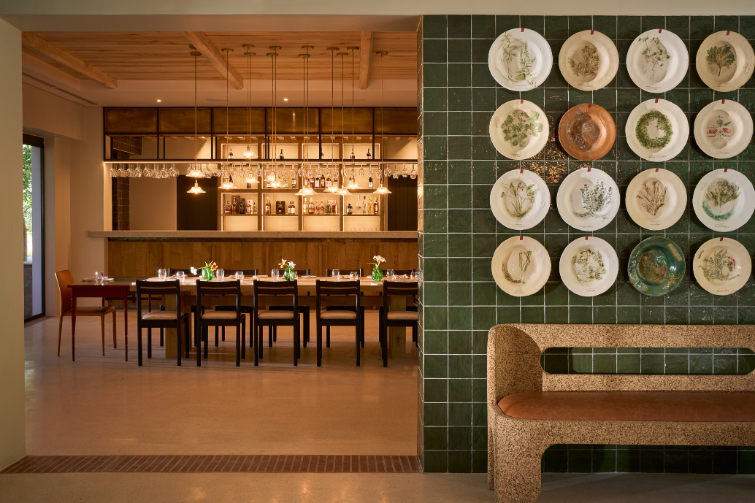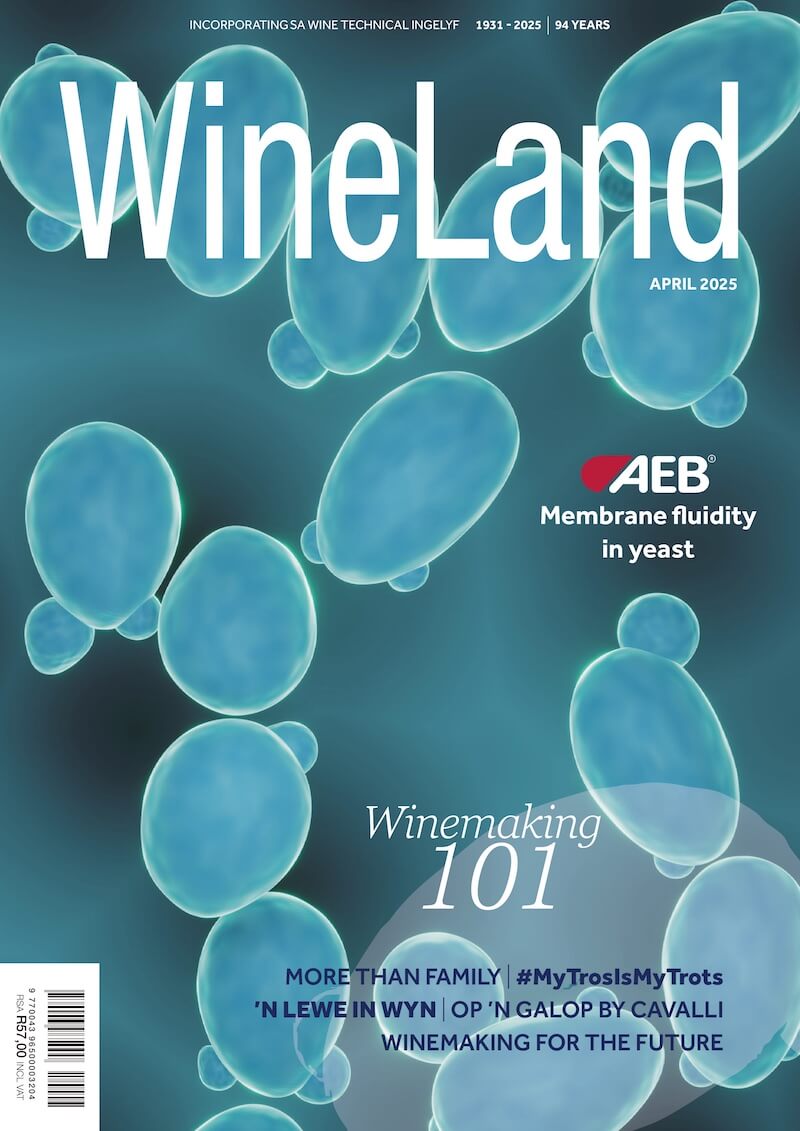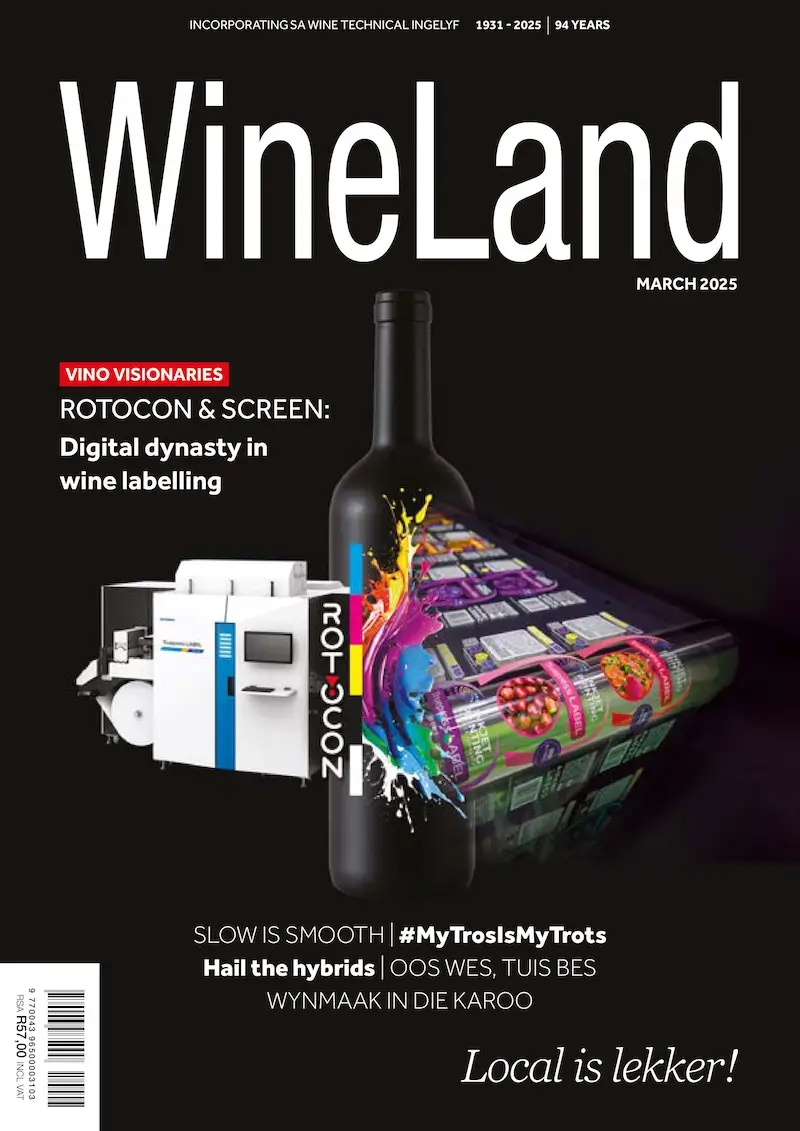Renowned wine critic and friend of the industry, Tim Atkin, recently revealed his 2024 South Africa Special Report. With over three decades of experience visiting the region, Atkin has a unique perspective on the evolution and future of South African wines.
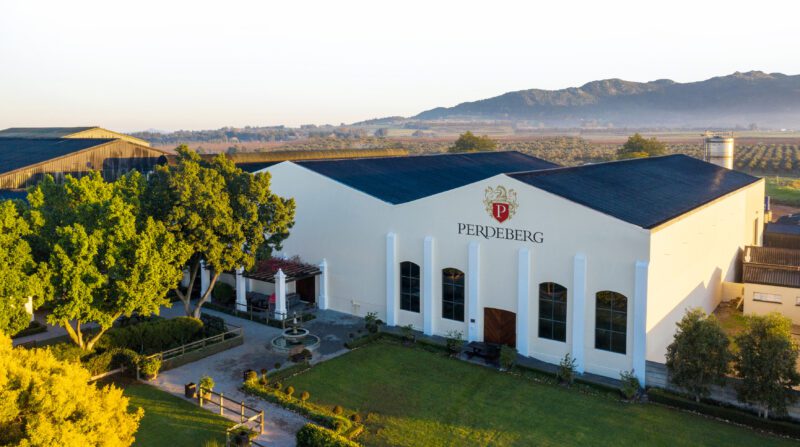
The home of Perdeberg Wines, Tim Atkin’s 2024 Producer Cellar of the Year.
A dynamic industry
Asked what still surprises him after the many years he’s been visiting South Africa, Tim highlights the remarkable transformation of the South African wine industry over the past 30 years. “I think when you look at what’s happened in that period, and not just politically, but also in the wine industry, it’s an utter transformation,” he says. “And it’s ongoing, you know, there’s new stuff all the time.”
Compared with other established wine regions such as Burgundy, South Africa’s wine scene is characterised by its dynamism, introducing new cultivars, innovative practices, and a constant influx of fresh talent that keeps the industry exciting and forward-moving.
“There are always new producers – particularly producers of colour,” Tim notes. “I think that’s been really exciting this year that many of the people who’ve been through the Cape Winemakers Guild programme or who studied at Elsenberg, sometimes independently of that, or at Stellenbosch University, are now kind of making their own wines.
Part of the reason for this is that it’s still possible to obtain first-growth quality grapes relatively cheaply, which enables young and independent winemakers to produce wines that achieve 95+ scores. This accessibility fosters innovation and diversity in the industry.
“How do you do that if you’re in Burgundy? It’s very hard to get access to grapes unless you’re inside a cooperative or something – particularly in top-tier villages like Puligny-Montrachet or Gevrey-Chambertin or Vosne-Romanée. Where are you going to buy those grapes? You just can’t do it. But you can buy grapes from the Paardeberg or Sinai Hill or the Helderberg and have your own brand.”
Making the most of terroir
As in last year’s report, Tim again emphasises the importance of terroir and site-specific wines in South Africa. He believes that further exploration and understanding of sub-regions will lead to even higher-quality wines.
“Apart from cool-climate regions such as Elgin and the Hemel-en-Aarde, I think Stellenbosch and Swartland are the most important regions for South Africa in qualitative terms. We haven’t really gone into the depth that we could do, particularly in Stellenbosch. You could easily develop at least eight or 10 sub-zones within Stellenbosch.”
The focus on terroir doesn’t necessarily translate into more single-vineyard wines; as Tim points out, some of South Africa’s best-rated wines have been blends, but it does represent a viable route for making our wines globally competitive.

The Sadie Family Wines 2022 Columella, Tim Atkin’s 2024 red wine of the year, is a blend from twelve different vineyards.
“The advances now will be made more in the vineyard than in the cellar. The people making wines understand how to make wine – the next step is to get better at viticulture, whether through water usage, regenerative agriculture, sustainability, or just better farming, generally.”
As with many wine regions worldwide, climate change poses significant challenges for South African winemakers, especially for water security. Tim suggests that the future of quality wine production lies in adapting viticultural practices to changing conditions, focusing on sustainability and efficient water usage.
Quality at any price
Callie Louw, Tim’s pick for winemaker of the year, exemplifies this approach. “Porseleinberg began as a brand in 2010 and has shown consistent quality each year, especially since 2018. Callie is an exemplary farmer, what the French call a vigneron – somebody who grows the grapes that go into his wine. He’s very emblematic of that focus on terroir, expressing a site and farming the site, and in my opinion, doing it brilliantly.”
Tim also singled out Perdeberg Winery as a good example of innovation coupled with consistency. “They took their Old Vine Project wines out of big blends and delivered consistently good quality. I see this as a good example of innovation.”
For him, the Old Vine Project underscores the value of preserving old vineyards and instilling pride in farmers. But it also highlights a persistent issue in the industry: under-pricing. “The elephant in the room, apart from climate change, is price. The wines are too cheap. It slightly pains me to see an Old Vine Project wine selling at R150 a bottle. I don’t think that makes any sense,” he says.
While South African wines offer exceptional value, especially in the R200-R300 range, he believes higher prices are warranted and necessary for the industry’s long-term sustainability. “Even if we got the average price of a bottle of wine up from R50 to R60, that would make a huge difference.”
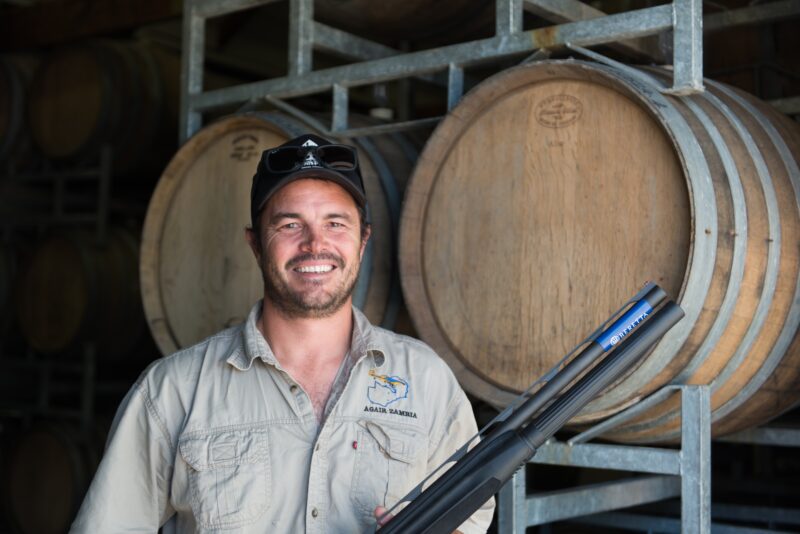
Tim Atkin’s 2024 winemaker of the year, Callie Louw of Porseleinberg.
Growth and investment
Tim says interest in South African wine – particularly fine wine – has never been greater, with positive consumer sentiment and investor confidence not only in the industry, but also in the country.
Tim believes the increased foreign investment is a positive force for South African wine, bringing in capital for improvements and modernisation, revitalising estates and pushing quality standards higher. This influx of investment is also a vote of confidence in the country’s stability and potential.
“I hope lots of outside investment comes in over the next five years, and South Africa becomes a stable country where people are happy to put their money and keep their money. The more people come in with money, and the more people make money, then the more likely they are to spend money on wine, which is, after all, a luxury product in a sense.”
The Springbok effect
Addressing pricing issues, particularly raising the average bottle price, will be crucial for the industry’s long-term viability. Tim also emphasises the importance of promoting wine as a product with provenance and cultural significance rather than just an alcoholic beverage.
“I feel South Africa is the most positive I’ve ever known it in 35 years,” he says. “Yes, there are problems, but the country feels very united. I don’t know whether it’s a bit of the Springbok effect, you know, that the Springboks are very successful, but it feels like an integrated team. And when you see the crowd at a Springboks game, it’s diverse.”
With continued focus on quality, terroir-driven wines, sustainable practices, and fair pricing, the South African wine industry seems poised for an exciting future. Tim Atkin’s insights reveal the transformation of South African wine as an ongoing journey of discovery, innovation, and excellence.
